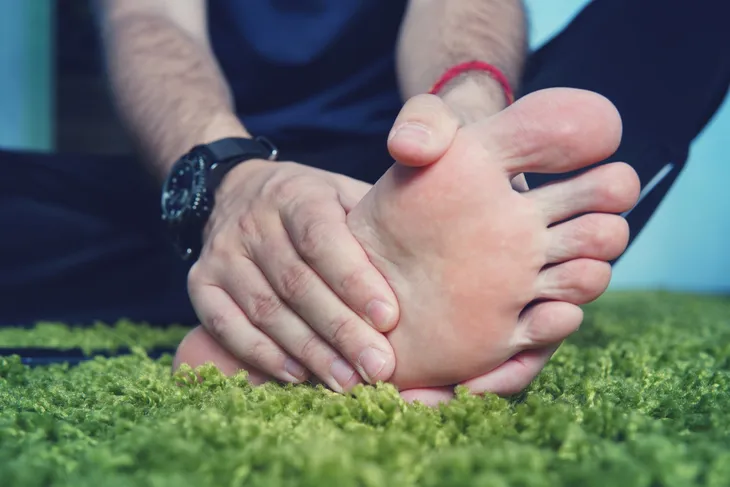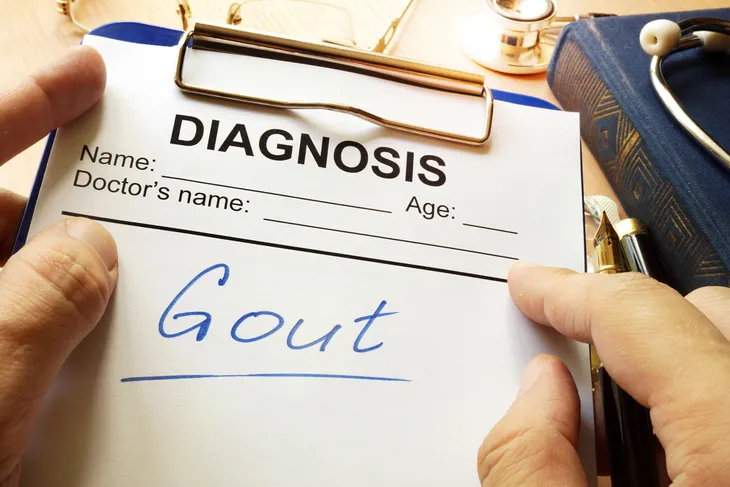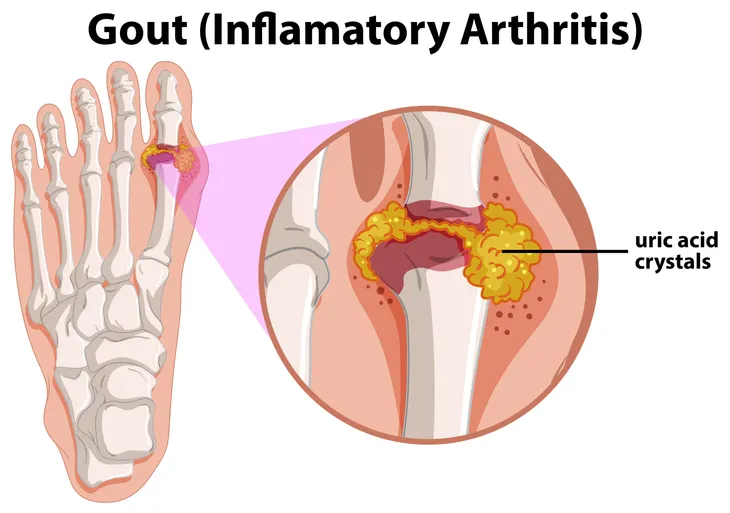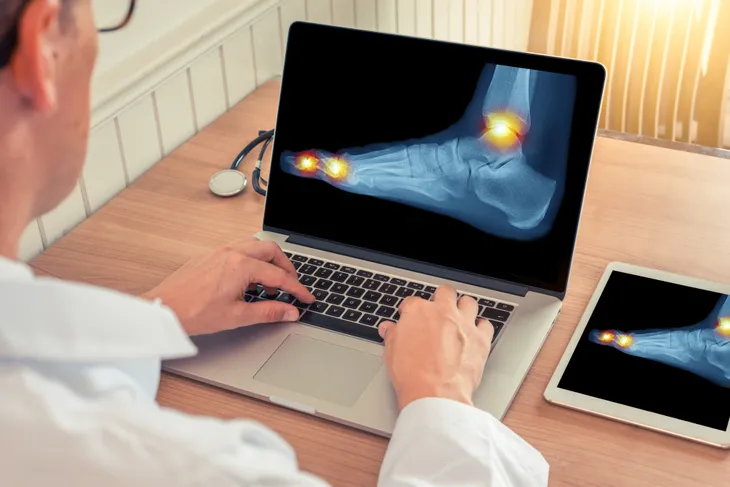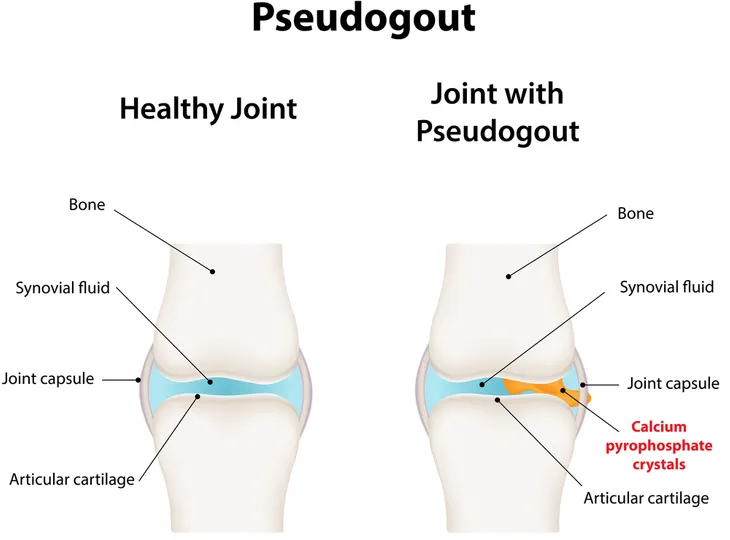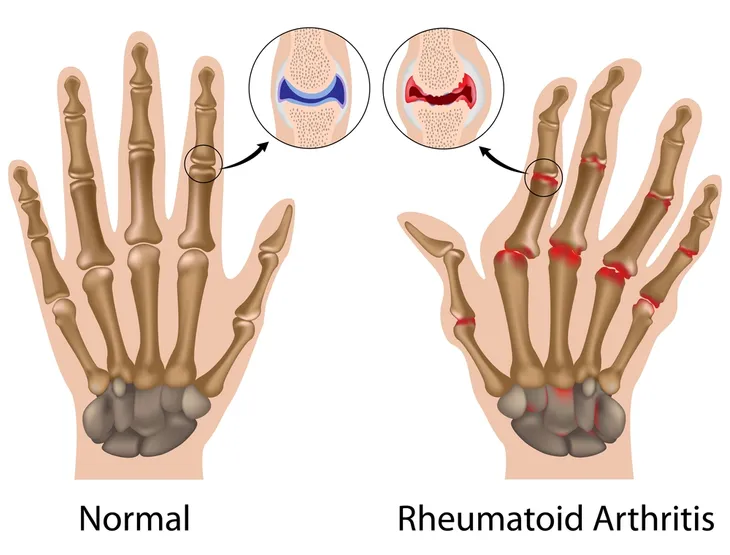Gout can be hard to diagnose because its symptoms are similar to other conditions. In this article, we’ll talk about the signs of gout and how you can know for sure if you have it or not.
First, let’s define what gout is. Gout is a kind of inflammatory arthritis caused by a buildup of uric acid in the blood. These can form into crystal deposits that settle in your joints causing those painful gout flares. Gout flares often occur in the big toe, but they can impact your other joints too like in the hands, elbows, knees, and ankles.
It usually just affects one joint in the beginning but if left untreated, it can spread to your other joints. The attacks too can become more frequent rather than just a one-time thing. This is why it’s vital that you find out right away if you have it.
How to Know if You Have Gout
The best way to know if you have gout is to visit a doctor and get yourself checked. Your doctor will first examine the affected area and ask about other symptoms before doing tests to confirm the diagnosis.
They might also ask you about your medical history as well as your diet and lifestyle. This is because gout is caused by a combination of genetic and environmental factors. If you have a family history of gout, then you are likely to have it. Further, if you consume high purine foods such as red meat, seafood, and beer, then you are at more risk for having gout as well.
Diagnosing Gout With a Blood Test
To confirm the diagnosis, your doctor may do a blood test which will measure the amount of uric acid in your blood. If your uric acid level is high, then you may have gout.
The best time to do the blood test is two to four weeks after the gout flare. After a gout attack, the uric acid level in your blood might drop since it has already formed in your joints.
Diagnosing Gout With a Joint Fluid Test
Another way to diagnose gout is through a joint fluid test. Your doctor will take a sample of fluid from the affected joint and they will then check if it has small crystals. This will also rule out another condition called septic arthritis which is similar to gout.
Diagnosing Gout With an Ultrasound or X-ray
A less invasive way to diagnose gout is with an ultrasound scan. This can also detect crystals in the joints. Similar to it is the x-ray although this method is rarely used since it isn’t as accurate as the ones mentioned above. But it can be helpful for ruling out other conditions that can be mistaken for gout such as chondrocalcinosis.
After Diagnosis
So, let’s say that you do have gout, depending on how severe it is, your doctor might refer you to a specialist for this condition. They are called rheumatologists and they will be able to give you the best advice on how to manage gout.
A general practitioner might just give you NSAIDs to help you manage the pain the next time you have gout, but a rheumatologist will prescribe you specific medications that reduce your uric acid levels. If you have other conditions such as kidney stones or high blood pressure, they can recommend other medicines that won’t affect these conditions.
Aside from medication, you might be given lifestyle recommendations such as changing your diet and exercising regularly. This is because gout is greatly exacerbated by our diet. You will be advised to control your purine intake.
Start by lowering the consumption of high purine foods and slowly get accustomed to eating low purine foods. You should also consider food and supplements that are highly beneficial for gout such as cherries, berries, apple cider vinegar, vitamin C, and bromelain.
Conditions Similar To Gout
These are the conditions that have similar symptoms as gout. If you experience any of these, you might be tempted to delay treatment thinking that it’s not really as bad. Be careful because when gout is ignored, it will not only spread to other joints, it can also develop into tophi.
Tophi is when the crystals turn into chalky nodules that look like hard bumps on the skin. These feel hard and can cause serious joint damage later on. Keep an eye for these early gout-like symptoms and visit your doctor right away just to be absolutely sure. Here are five conditions that are similar to Gout.
Septic Arthritis
As we mentioned earlier, septic arthritis is one of those conditions that are similar to gout. The affected joint will be swollen. You may also get a fever since your body is trying to fight off the infection.
Pseudogout
Just like gout, this condition is a result of crystals accumulating in the joint. The only difference is the type of crystals. With gout, it’s uric acid crystals that accumulate. Meanwhile, pseudogout is a buildup of calcium pyrophosphate crystals.
Rheumatoid Arthritis
Rheumatoid arthritis is another condition that can be easily confused with gout. In severe cases, they can result in nodules on the skin. With gout, this is called tophi which is, again, the accumulation of uric acid crystals. But if it’s rheumatoid arthritis, they will find C-reactive protein, anti-CCP, erythrocyte sedimentation rate, and rheumatoid factor in your blood tests.
Psoriatic Arthritis
Psoriatic Arthritis causes swelling around the toes and fingers that can look like gout. However, the main difference is the appearance of skin plaques and pitted fingernails. This doesn’t happen with gout. Also, when you have psoriatic arthritis, there won’t be uric acid crystals in the affected joint.
Bacterial Skin Infection
This condition can often affect the lower part of the leg, making it seem like gout. The affected area may be red, hot, and painful. If you’re not sure whether you have this or gout, it’s better to do a blood test instead of a joint fluid test. This is because the latter can be quite invasive and can cause the infection to worsen.

